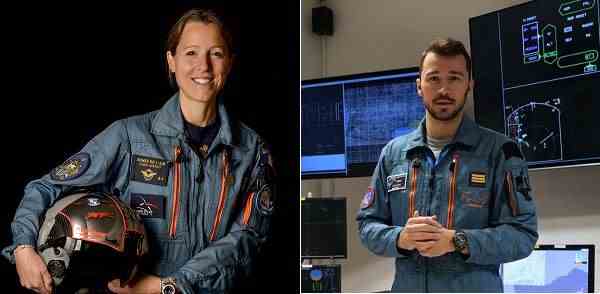After tough negotiations between its member countries, the European Space Agency [ESA] obtained, on November 23, a budget of 16.9 billion euros for the next three years. If this amount shows a sharp increase [+18%], it remains however below the envelope of 18.5 billion that its director general, Josef Aschbacher, had requested. However, he said he was “very impressed with this result”, given the “level of inflation”. It should be noted that France’s contribution will amount to 3.25 billion euros, or approximately one third of the French budget dedicated to the space sector for the next three years.
This ESA budget will be used to finance several space exploration programs [2,7 milliards] and earth observation [également 2,7 milliards] as well as the Ariane 6 and Vega-C space launchers.
Furthermore, ESA took the opportunity to unveil the list of its future astronauts, selected from over 2,000 candidates. In total, seventeen holders with eleven substitutes will form this new promotion. This will include a “parastronother”, in the person of the British John McFall. This accomplished sportsman, amputated of a leg at the age of 19, did brilliant medical studies, which will now open the way to the stars for him.
France is the country which presented the most volunteers. And of the 7,087 aspiring astronauts who submitted their application, Lieutenant-Colonel Sophie Adenot was nominated by ESA. This soldier is not unknown: in 2018, she was the first French woman to become a helicopter test pilot within the Directorate General of Armaments [DGA] “Flight Tests”.
A graduate of the National School of Aeronautics and Space, Sophie Adenot began a career in the Air and Space Force [AAE] as a helicopter pilot. A time assigned to the squadron 01.067 “Pyrenees”, with which she carried out a hundred missions in Afghanistan at the controls of an EC-725 Caracal, she was then transferred to the ET60 of Villacoublay to fly a Super Puma.
Then, following in the footsteps of Jacqueline Auriol, Sophie Adenot passed the competition for the School of Test and Reception Aircrew [EPNER]in 2017. And she earned her UK helicopter test pilot license at the Empire Test Pilots’ School in Boscombe Down, which allowed her to fly the Agusta A109, Gazelle , the AH-64 Apache or the Bell 412.
“It is a source of pride that the next French astronaut comes from the rank of the Air and Space Force, which constitutes recognition of the excellence of training within the armies, the excellence of its men and his wives,” welcomed General Stéphane Mille, AfWA Chief of Staff.
As a reminder, the last military pilot to fly in space was General Léopold Eyharts, in February 2008. And the first French woman to perform an orbital flight was Claudie André-Deshays [épouse Haigneré]in 1998.
“Decorated with the National Order of Merit in the rank of Knight in 2022, Lieutenant-Colonel Sophie Adenot embodies the excellence of the French armies. With this new promotion, she becomes a new ambassador of the armies in the space field which constitutes a strategic environment, “said the Ministry of the Armed Forces.
Apart from Claudie Haigneré, Jean-Jacques Favier and Thomas Pesquet, French astronauts generally have a link with the military world in general [et celui de l’AAE en particulier]. And this is again verified with the choice of the replacement for Mrs. Lieutenant-Colonel Adenot. Indeed, having followed the same path as Jean-François Clervoy in his time, the ESA chose the weapons engineer Arnaud Prost. Second Lieutenant in the 1st Parachute Hussar Regiment [en 2013] before joining the École polytechnique, then ISAE-SUPAREO, this test pilot also holds a master’s degree in astrophysics, space sciences and planetology. During his engineering studies, he completed a research internship at NASA’s Jet Propulsion Laboratory as well as at the Skobeltsyn Institute of Nuclear Physics and the Moscow Aviation Institute. He also worked at COMEX, where he became interested in diving, which made him in common with American astronaut Scott Carpenter.
Update:
– Clarification on the French contribution
– Precision on the course of the armament engineer Arnaud Prost

